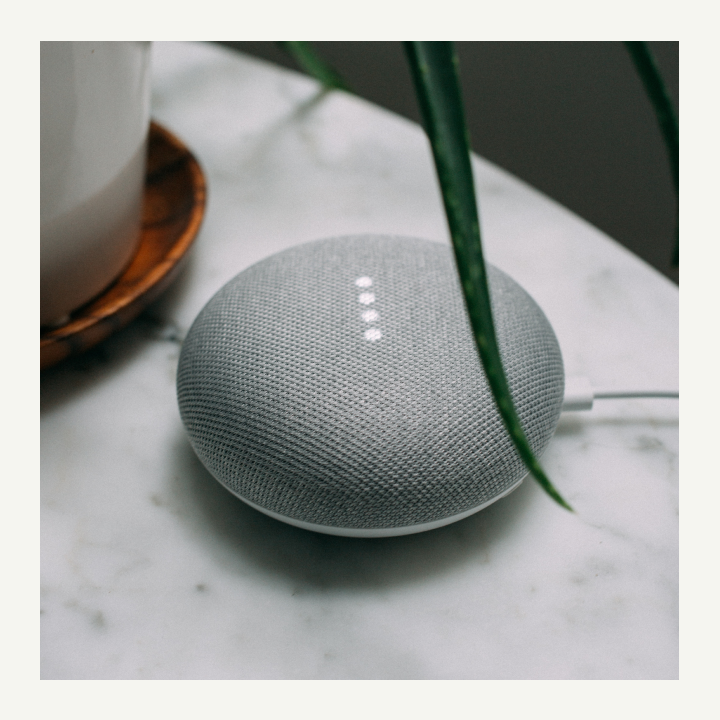
When us humans are faced with a situation we know little about or are uncertain of the outcome, we’re left with options—two of which are to embrace and evolve, or to simply turn a blind eye. When it comes to AI in everyday life, the latter may feel easier, but the age-old notion of ignorance is bliss isn’t always the way to go, especially when life and the careers that are in it are choosing a different route: evolution. In just a few short years, we’ve witnessed an immense amount of change in the tech space.
Some of it may seem too close to a Black Mirror episode, but other advances feel like they’re headed in the right direction; a revolution of living, made easier by AI, but led by humans. Humans, like you.
What is AI?
AI, also known as Artificial Intelligence, is the simulation of human intelligence in machines. It refers to a machine’s ability to perform the cognitive functions that are typically associated with human minds.
When you think of AI, you might jump to ChatGPT, Midjourney, or any other new put-a-prompt-in type technology, and you wouldn’t be wrong to do so. But that’s just one type: Weak AI.

Weak AI, sometimes called narrow AI, is limited to a specific area. Examples of it include detecting patterns in big data, generating copy for emails, contracts, clauses, etc., or suggesting purchases for consumers. By contrast, Strong AI is less specific and much more capable. Also called Artificial General Intelligence (AGI), it’s the type of AI that we think of when our minds go to “the future”, i.e. an intelligence equal to humans with self-awareness and the ability to solve problems, learn new things, and make plans. But don’t worry—it’s only theoretical. (For now.)
AI’s impact on society: The good, the bad, and the did-I-really-need-this?
Currently, AI in everyday life isn’t about robots taking over humanity. It’s about making life easier, more efficient, more affordable, and more specific to what we want and when we want it.
Today, AI is the autofill that completes our sentences better than our soulmates could. It enables people to generate beautiful art through written prompts, and it predicts our wants and needs before we’re aware they even exist.
AI is also the culprit of job losses. It’s brought the three C’s of copyright, consent, and compensation to the courtroom. It generates billions of dollars in revenue for the tech giants who can afford the mega-Meta budgets it takes to reach consumers around the world. In a way, AI’s impact on society is like a seesaw: there are highs and lows, and sometimes, there’s balance–if you aim to create it.
6 AI tools making everyday life easier
If we take a closer look at the role AI has played in our lives, we’ll realize that it’s been in close orbit for decades. Yes—decades.
In 1970, the American cognitive and computer scientist, Marvin Minsky, stated that, “from three to eight years, we will have a machine with the general intelligence of an average human.”
Due to computational power, or lack thereof, that wasn’t necessarily the case, but just 10 years later, the world saw a resurgence in AI interest and its funding. This rise led to monumental milestones, like in ‘97, when world chess champion and grandmaster, Gary Kasparov, lost to Deep Blue, IBM’s chess-playing computer program.
But AI is more than fun and games. In 2023, we’re using it to make life (and work) easy.
Here are six tools that use AI to do just that.
1. Smart Home Devices
“Hey Google: who sings Paranoid Android?” From helping us get earworms out of our heads to turning up the heat in the living room, Smart Home devices make life and where you live it a bit more livable. They analyze data to make predictions on how the humans in your household behave and what you may need and want.


2. Streaming Services
Want something to watch? Even if you don’t know what to put on, the algorithm will help. It uses the shows you’ve watched and serves you more content that’s similar to the type you’ve consumed, so you don’t have to spend hours scrolling romcoms if you prefer true crime documentaries.
3. Rideshare Apps
Rideshare apps, like Uber, use AI to support forecasting. No, not the weather, but ways to personalize the customer experience based on past behavior. That can include showing predicted arrival times, best routes, and more.
4. Social Media
Social media uses AI to serve or recommend to audiences the most relevant information based on their preferences and behaviors, but it also uses the tool to detect and remove things like hate speech and fake news.
Plus, if social media is part of your role or side hustle, AI can support daily tasks like content creation, caption writing, and ideation, and even tweak your content so you can distribute it across a number of different platforms.

Tools like Hootsuite have built-in AI functions to make posting on social media quick and easy, so you don’t have to spend time writing captions and content for every network—it will do that for you.
5. Customer Service
Asking a question online and wondering if it’s a real person or a chatbot? It’s likely the latter.
More and more, businesses are using AI to predict and answer customer questions, track deliveries, and manage orders. And while it’s not always a human behind the computer typing, a team is on the other end to make sure that the AI is trained to provide answers that leave customers feeling understood and satisfied.
6. AI for Autonomous Vehicles
While this tool technically takes us out of the home and onto the road, it still makes life easier. Autonomous vehicles, i.e. self-driving cars, use AI for navigation and route assistance, to make judgment calls when driving, and can master the parallel park, all without human intervention.
Life’s better with AI—if you want it to be
AI continues to advance, and with it, so does the world around us. Gone are the days of marveling over chess matches lost to computers or wondering if and how cars would drive on their own. Today, we’re using AI and machine learning to predict treatment protocols, witnessing its mark on politics through both the creation and detection of deep fakes, or simply, using it to craft first drafts of cover letters for prospective jobs.
The fact is, AI has a role to play in everyday life. But the good news? You have a role to play, too—and yours is anything but artificial.







